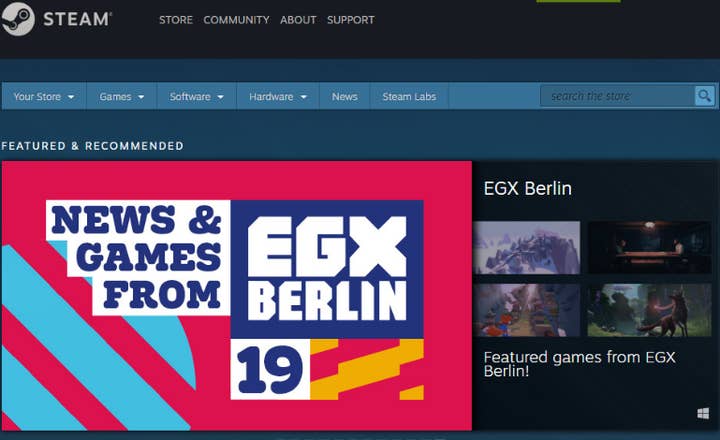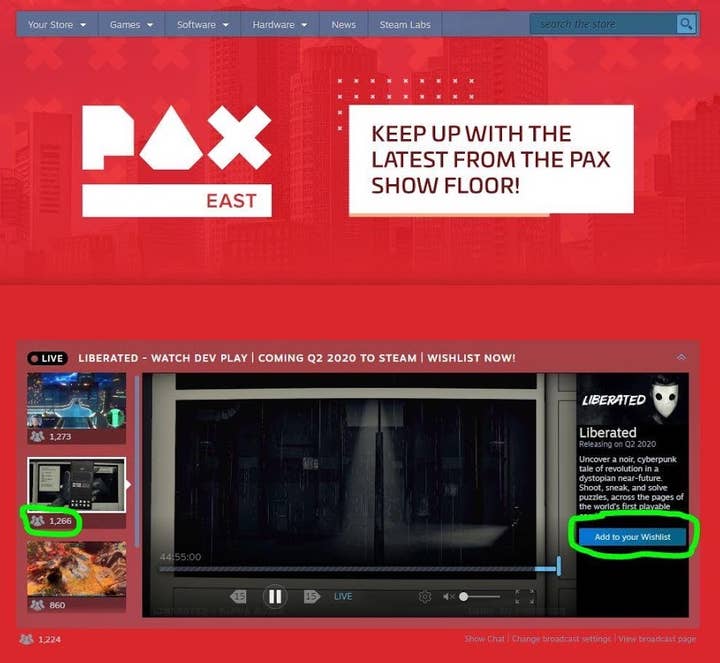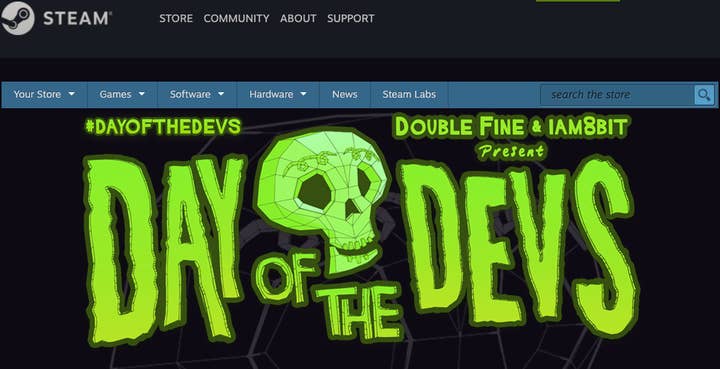How events being featured on Steam is changing games marketing
For the GamesIndustry.biz Academy, Michal Napora explores what events being featured on Steam can do for your game
This month marks a huge milestone for me. It's been six years since I started marketing video games, and during these six years I've learned one thing -- the marketing game always changes.
What worked for me in the past might no longer work for me today, and what is crash-hot right now will probably be irrelevant in a few years. While there are some constants that will never change -- and we can talk about them some other time -- it's the new opportunities rising right now that get me really excited. And one of those new trends is the fact that events are now being featured on Steam.
The marketing game always changes -- what is crash-hot right now will probably be irrelevant in a few years
Today, I want to share my experience with this trend, the results that I got, and a few tips on how to get the most from events being featured on Steam.
Steam's new frontier
The first time I saw this Steam feature was late in 2018, when a client of mine was included in Double Fine's Day of the Devs Steam feature. However, it wasn't until November of last year that I truly understood just how much of a game changer this really is.
Every developer knows that having a front-page placement on Steam is an awareness bonanza, which leads to a lot of additional Wishlists, or sales if your game is already out. We all know the classic front-page placements, like Featured and Recommended, Special Offers, Charts, and even the streams. But now there is a new feature, and it's tied to real-life physical events, such as the already mentioned Day of the Devs, but also EGX, PAX, and The Game Awards.

This is how it works: as you can see from the screen below, the last EGX Berlin event had a front-page banner that was present throughout the entire three-day event. If you or any of the hundreds of thousands of everyday Steam users clicked on it, you would be taken to a dedicated page. Once there, you will see every game that is present at the event and has a Steam store page set up -- you should have one set up as soon as possible anyway.
From here, you can click on any of the game banners and be taken directly to a store page. If your page is set up nicely, a whole new number of people will hear about your game, follow it, and hopefully buy it when it comes out.
Together with the stream and the store page feature, we got over 1,700 wishlists in the first 24 hours
Okay, but what about the numbers?
As every marketer knows, exposure is good, but actionable results are even better. So what marketing result can you get from this feature? Well, let me run some numbers by you. During the EGX Berlin event, my client received around 2,500 Steam Wishlists -- that's not bad, and throw in post-event press coverage and you get a pretty good "bang-for-your-buck" result. But it gets better.
Another client of mine was part of the last PAX East. In addition to the placement of their store page in the event's Steam feature, they went one step further. A few hours before the event started, they set up a looped stream on their Steam store page. Once the PAX East event feature was up on the front-page of Steam, it pumped them up to the No.1 most watched stream on the event page. And from there, the viewers kept on rising -- and so did the wishlists.
Together with the stream and the front-page feature, we got over 1,700 wishlists in the first 24 hours, and over 5,000 over the course of the event. That is a phenomenal result.

What does this all mean for me?
As most of you know, marketing costs money, or at the very least, your time. To play the marketing game as best as you can, you have to be smart. Events can cost quite a bit -- apart from the booth itself, you have to account flights and travel expenses, food, hotels, and of course, time lost. All of this adds up.
This additional Steam front-page feature has made some events more valuable than others. Would I rather spend money on an event that I know will generate me wishlists, or go to an event where I have no guarantee that I will receive coverage (even more so if you're an indie)? This question has been on my mind, and it certainly made me rearrange my marketing plans for my clients going into 2020 and beyond.
This additional Steam front-page feature made some events more valuable than others
Don't forget to polish your store page
Before I leave, I just wanted to give you some last pieces of advice. First up, and this is obvious, but have a Steam store page ready for your game. No store page means no feature, so set one up before you go to an event, otherwise you're selling yourself short.
Next, think about your game's key art. Remember, it won't be just you listed on that event page. You will be competing for attention with other games that are also part of the event, so invest in cover art that really pops and stands out -- it's all about the branding. Once you catch people's attention, make sure your Steam store page is attractive, well written, and makes you look good. This will be the moment where a lot of people decide if they should click that "Add to Wishlist" button. Make that choice for them as easy as you can.

Finally, have a live stream on your Steam store page going just before the event starts, and keep it going throughout the event -- a pre-recorded looped video is fine. This is additional exposure, and if you look closely, there's a very nice "Add to Wishlist" button right there next to the stream. It's a low cost but highly beneficial activity that will maximise your gains from the event.
I feel that events being featured on Steam will be more widely used and, now with the current situation that we are going through, it might even become the norm. Make the most from it before everyone catches on.
Once they do, we can meet again and see what else we can do to stand out from the crowd, and get people to notice us. By then, perhaps physical events are going to be all the rage, and digital ones will be passé. After all, change is the one thing that remains constant.
EGX Berlin and PAX East are operated by GamesIndustry.biz's parent company
Michal Napora is a video game marketer and owner of marketing agency 32-33. His gaming credits include Dying Light, The Sinking City, Aragami, Sherlock Holmes: The Devil's Daughter, and more. If you need help or advice on marketing, you can reach him on LinkedIn.